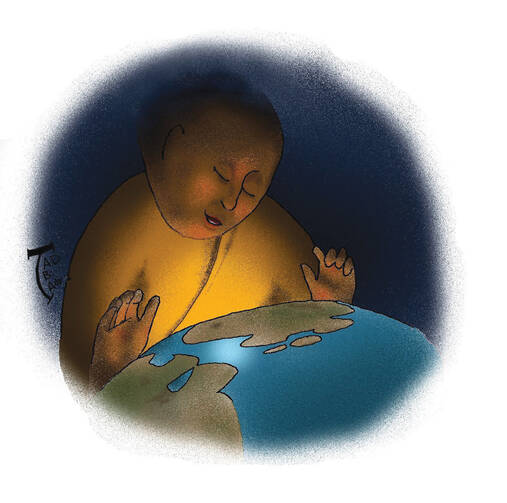The Comfort of Hope
What comfort is there in waiting? Comfort is usually not found standing in line at the D.M.V. or waiting for an appointment at the doctor’s office as the minutes tick away. Then you simply hope, as frustration builds, that you can get out as quickly as possible and get on with your life.
This sort of ordinary, everyday hope has to do with desires and wishes that come and go and quickly pass. These everyday hopes can be more significant than this daily drudgery, too, regarding long-term hopes for sports teams, for work and for family. These are things in which we invest our lives and dream dreams about accomplishments and fulfilment, but these hopes often have to do with “hoping for” something.
But there is another kind of waiting that brings deeper comfort because it is based upon more fundamental hope, a “hoping in” something. Fundamental hope does not have to do with “having” or “acquiring,” but is focused on the welfare of people and our hope of salvation. Josef Pieper spoke of fundamental hope as arising when everyday hopes withered and blew away. “Out of the loss of common, everyday hope true hope arises,” wrote Pieper in Hope and History. This is the hope of the martyrs, which persists when all human hopes have been vanquished.
This fundamental hope, grounded in the being of the living God of Israel, led Isaiah to call out, “Comfort, O comfort my people, says your God.” What is the comfort that Isaiah is to offer to God’s people? It is the promise of God himself, who will act in the future for his people: “See, the Lord God comes with might, and his arm rules for him; his reward is with him, and his recompense before him. He will feed his flock like a shepherd; he will gather the lambs in his arms, and carry them in his bosom, and gently lead the mother sheep.” This promise grounds the fundamental hope of a people who must wait for it in faithfulness. This is hope in the comfort of God.
Isaiah promises that hope will not disappoint, and we are assured that “surely his salvation is at hand for those who fear him, that his glory may dwell in our land.” The Gospel of Mark recalls the words of the prophet Isaiah, seeing the fulfillment of this hope in “the beginning of the good news of Jesus Christ, the Son of God. As it is written in the prophet Isaiah, ‘See, I am sending my messenger ahead of you, who will prepare your way; the voice of one crying out in the wilderness: Prepare the way of the Lord, make his paths straight.’”
The hope of the early Christians was that Jesus would indeed enact the hopes of Isaiah, establishing the kingdom of never-ending peace and righteousness, the end of waiting in exile banished. When the kingdom was not established in the way the early Christians had hoped, but through the death and resurrection of Jesus Christ, the disciples did not abandon Jesus or his promises but relied upon a more fundamental hope: the truthfulness and faithfulness of God to do what God had promised in a time that is not our own and does not adhere to human schedules or calculations.
In 2 Peter we read “that with the Lord one day is like a thousand years, and a thousand years are like one day. The Lord is not slow about his promise, as some think of slowness, but is patient with you, not wanting any to perish, but all to come to repentance. But, in accordance with his promise, we wait for new heavens and a new earth, where righteousness is at home.” This fundamental hope gives us comfort because it is beyond the hopes that disappoint; it is not a “thing” we want or “stuff” we think we need, but the more fundamental reality that gives us deep comfort: Jesus will return and in the returning of Jesus our deepest needs are met. Our waiting is not the absence of hope, or hope dissipating in a dreary waiting room, or dreams that do not come to fruition. It is the comfort of the living God, who comes to us when ordinary hopes disappear and who is coming to us even now. And the joy of this hope gives comfort even in the waiting.
This article also appeared in print, under the headline “The Comfort of Hope,” in the December 1, 2014, issue.








